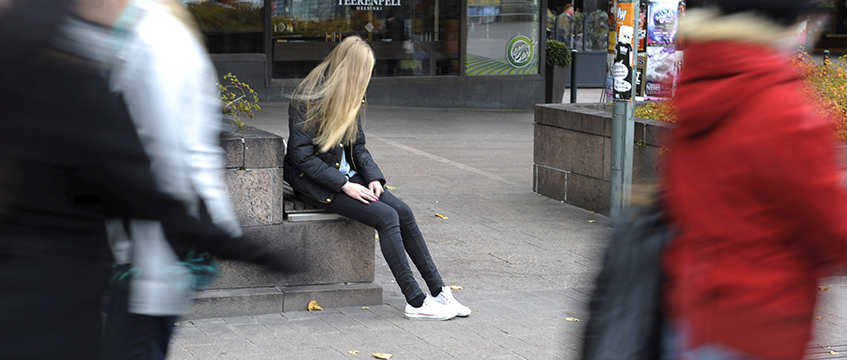As custodians of retail places we play a crucial role in bringing communities together.
We are tasked with creating spaces that are vibrant and future-proof, but above all we are responsible for creating places that are inclusive and safe for all.
Tragically, suicide is an issue which touches a significant number of people and is one of the most traumatic experiences that a person may be forced to cope with. According to the Office for National Statistics, there were 6,507 registered incidents of suicide in 2018, which is 11.8% increase on 2017. Public Health England estimates as many as one in three occur in public places. We all have a duty of care to the vulnerable people in our communities.
That responsibility has led Revo to collaborate with Samaritans and draw on the experiences and expertise across our membership to develop a new toolkit for professionals who own and manage retail places.
This week we publish the guidance to coincide with World Suicide Prevention Day on 10 September.
Protecting people at risk is a multi-faceted, multi-agency issue. Vulnerable people are not always identifiable and there are numerous methods and locations an individual can choose to die by suicide. As a result, not all suicides are preventable. However, fact-based evidence and personal experience shared by Samaritans paints a more optimistic picture of what can be done to help those who have given up hope.
Our guidance aims to provide practical advice on effective intervention and physical solutions focusing on areas including:
• Knowing the world around us
It is important that employees are mindful of the external factors – the social, economic, political and local issues – which may be affecting members of the community. Samaritans sees these as principal reasons why people choose suicide. Employees are better placed to intervene if there is a mechanism for sharing information and staff are briefed on these factors.
In our guidance we encourage conversation with individuals who we deem to be vulnerable or at risk; conversation that allows the individual to be listened to. This ranges from kind words to conversations with people who appear to be isolated, lonely, distressed, depressed or confused. Sometimes a kind word is all it takes to get someone talking and to open up about their immediate issues or intentions.
• Eyes and ears
Technology can be used to empower staff further. We suggest CCTV surveillance and regularly changing sweep patterns to try to ensure that all areas are covered and that staff have the maximum information available. We know that there is some anxiety about the surveillance of public places, so it is important to communicate clearly that CCTV is there for everyone’s safety.
• Restricting access
By building up a more detailed picture, we can identify the areas that are higher-probability locations for suicide and consider deploying more staff to these areas to create more opportunities for intervention.
In some cases, there may be justification for restricting unauthorised access to particular areas. There are a variety of practical measures which can be taken, such as the installation of perimeter fencing to prevent edge access at areas of height. Risk assessment is crucial.
When there is no opportunity to intervene, or intervention fails, our duty of care moves to our employees. Some of the professionals who gave up their time to develop this guidance have witnessed incidents of suicide or attempted suicide and were prepared to share their experiences. It is clear that the impact can be significant and long-lasting and we must ensure the correct support mechanisms are in place.
Our toolkit includes details of how to deliver an effective employee assistance programme and ensure that all members of staff affected by an incident have access to the specialist expertise they need.
This has been a complex and emotive issue to cover, and I would like to thank everyone who has given their time and shared their experiences in order to develop this guidance.
View the guidance and toolkit at www.revocommunity.org
Mark Robinson is co-founder of Ellandi and president of Revo
For more on mental health in the property industry: EG Mental Health hub











